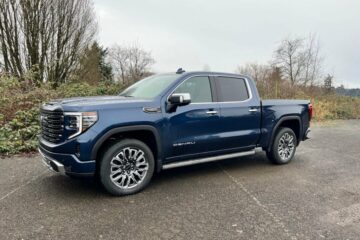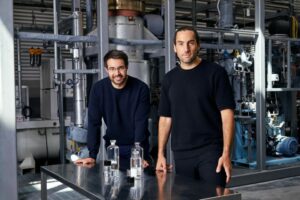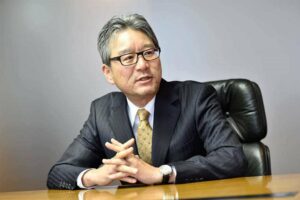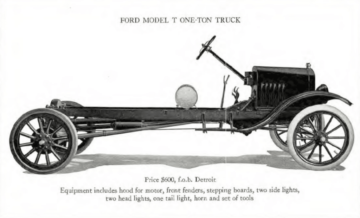Members of Unifor, like their UAW brethern in the U.S., have now approved strikes at Ford, General Motors and Stellantis when the union’s contract expire Sept. 18, four days after the deadline in the states.

But Unifor also is eyeing a long-term strategy, involving critical EV minerals mined in Canada.
New venture in Quebec
With the Canadian union watching closely, Ford Motor Co. is teaming up with South Korean battery makers EcoPro BM and SK On to build an $886 million facility to produce the materials for electric vehicle batteries in Quebec, Canada.
The new plant, located in Bécancour, Quebec, is getting the equivalent of $476 million in subsidies from the Canadian federal government and the province of Quebec to help finance the development, which is expected to create 345 jobs.
Construction has already begun on the 3-million square-foot plant, and when it is finished, it will have the capacity to produce up to 45,000 tons of cathode active materials per year for Ford’s future electric vehicles. Production is expected to begin in the first half of 2026.
The new plant will be Ford’s first ever investment in Québec and is part of its plan to produce raw material within North America.
Bev Goodman, president and CEO, Ford of Canada, says the plant is part of the automaker’s plan to localize key raw battery material processing in regions where it produces EVs.
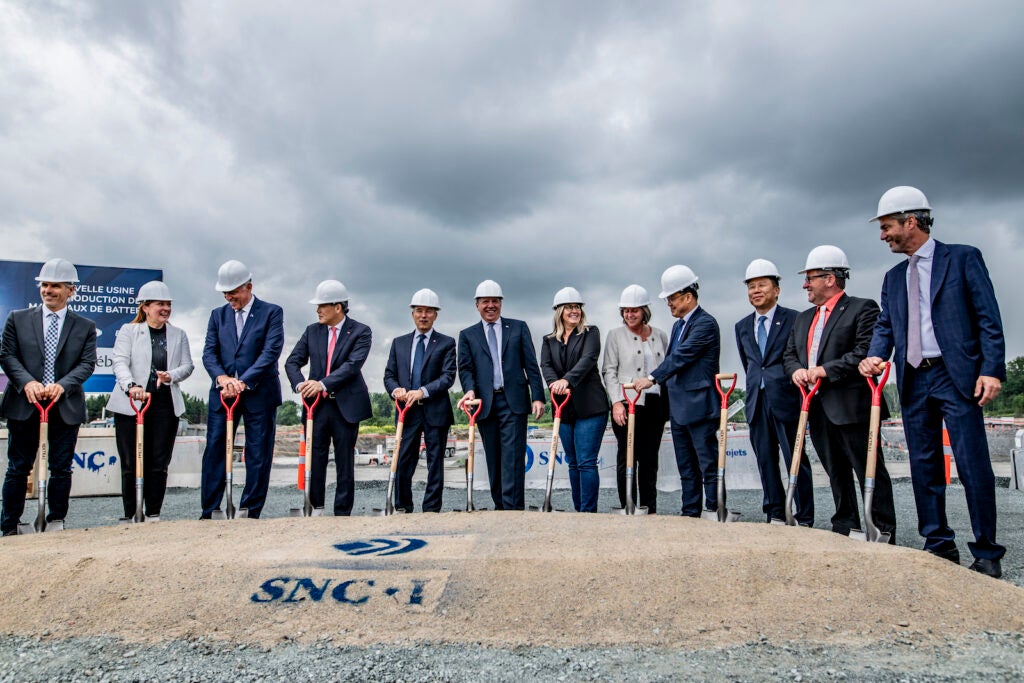
“Ford has been serving customers in Canada for 119 years, longer than any other automaker, and we’re excited to invest in this new facility to create a vertically integrated, closed-loop battery manufacturing supply chain in North America designed to help make electric vehicles more accessible for millions of people over time,” said Goodman.
“We’re excited for the opportunity for our first-ever investment in Québec with a new facility that will help shape the EV ecosystem there,” she added.
Edge in mineral hunt
Meanwhile, Unifor, which is in the midst of negotiating new labor agreements with Detroit’s automakers, also says it is encouraged by Ford’s commitment to invest in a battery cathode plant in Québec.
As the union representing 37,000 auto workers across the country, including Ford workers, Unifor welcomes this further commitment to re-invigorate Quebec’s auto industry and anchor the electric vehicle transition in Canada, said Lana Payne, Unifor general president.
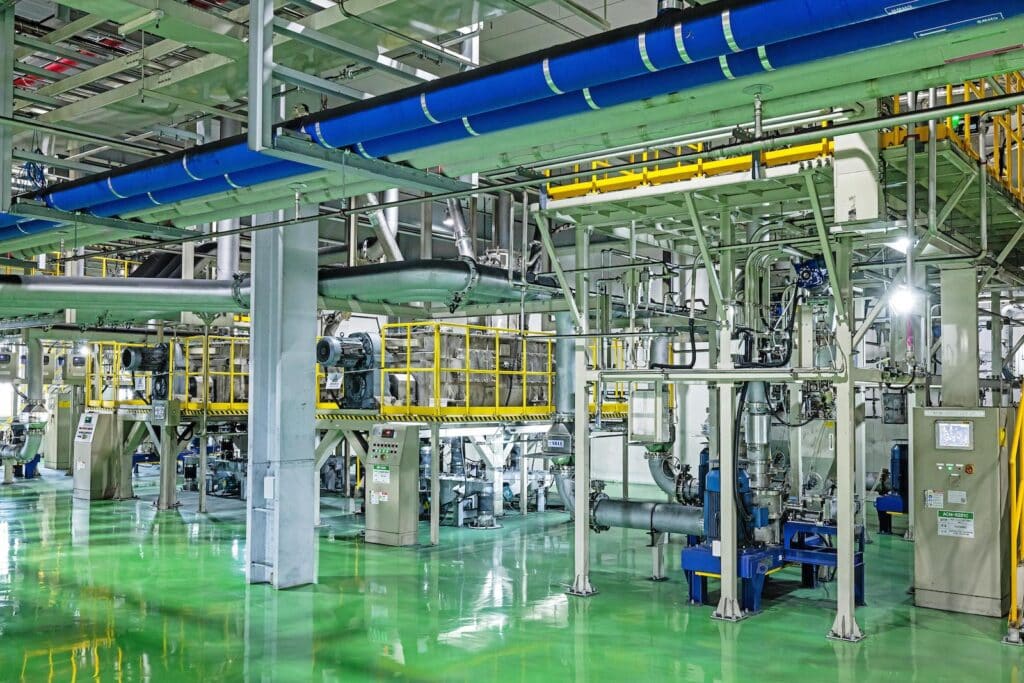
“Ford’s investment announcement in Bécancour is an important step towards the reestablishment of a stronger and more sustainable automotive industry in Québec and Canada,” said Payne. “Every job along the automotive supply chain has the opportunity to translate significant economic benefit not only to workers and their families, but also to its surrounding region, and our country.”
The Ford investment joins a series of battery projects — and potential new members for the Canadian union — already announced or under construction, including a GM facility in the region.
“Québec has a significant history in automobile construction, both in assembly and parts manufacturing, which is somewhat forgotten today. The cumulative announcements made in the Bécancour region herald a true renaissance of this economic sector in Quebec,” said Daniel Cloutier, Unifor Québec director.
Unifor expects to represent the workers employed at the Becancour plant and the GM-Posco plant, says Unifor’s Renaud Plante.
“We want to make sure that all the investments and public money put into those facilities have concrete impacts in the communities and we believe that making sure those jobs are good union jobs represented by the largest private sector union in Canada and the most important in the auto sector is the best way to achieve that,” Plante told Wards Auto.
What’s coming
EcoPro CAM Canada LP’s plans for Québec plants call for processing high quality Nickel Cobalt Manganese (NCM) for rechargeable batteries that are targeting greater performance levels and improved EV range compared to existing products, thanks in part to EcoPro’s core shell gradient technology.
EcoProBM established EcoPro CAM Canada LP in February. SK On and Ford will become investors once the deal is closed; the joint venture is subject to closing conditions and regulatory approvals. EcoProBM will oversee the day-to-day operations of the facility.
For SK On, the new facility is part of its efforts to secure a stable supply of key battery materials in North America. The South Korean battery maker has been actively developing its battery supply chain in the region where demand for EVs is growing fast.
The latest investment also shows that SK On, which currently operates two battery plants and is adding four more plants with its partners in North America, is committed to lead the way in the region’s transition to EVs. SK On’s annual production capacity in North America is expected to reach more than 180 GWh after 2025, which is enough to power about 1.7 million EVs a year.
“Through the cathode JV, the three companies can have a stable supply of battery raw materials in North America,” said SK On Chief Commercial Officer Min-suk Sung. “We will continue to work with our partners to lead electrification of the global auto market.”
For EcoProBM, Canada is the second global market expansion after Hungary and marks the company’s entry into North America.
“By expanding here in North America, EcoProBM looks forward to globalizing our growth in cathode materials, which has been a unique strength of our company,” said Jae-hwan Joo, EcoProBM CEO.
- SEO Powered Content & PR Distribution. Get Amplified Today.
- PlatoData.Network Vertical Generative Ai. Empower Yourself. Access Here.
- PlatoAiStream. Web3 Intelligence. Knowledge Amplified. Access Here.
- PlatoESG. Automotive / EVs, Carbon, CleanTech, Energy, Environment, Solar, Waste Management. Access Here.
- PlatoHealth. Biotech and Clinical Trials Intelligence. Access Here.
- ChartPrime. Elevate your Trading Game with ChartPrime. Access Here.
- BlockOffsets. Modernizing Environmental Offset Ownership. Access Here.
- Source: https://www.thedetroitbureau.com/2023/08/unifor-sees-opportunities-as-ford-invests-in-ev-materials-processing-plant/
- :has
- :is
- :not
- :where
- $UP
- 000
- 1
- 180
- 2023
- 2025
- 2026
- 7
- a
- About
- accessible
- Achieve
- across
- active
- actively
- added
- adding
- After
- agreements
- All
- along
- already
- also
- america
- an
- Anchor
- and
- announced
- Announcement
- Announcements
- annual
- any
- approvals
- approved
- ARE
- AS
- Assembly
- At
- auto
- automakers
- automobile
- automotive
- automotive industry
- batteries
- battery
- BE
- become
- been
- begin
- begun
- believe
- benefit
- BEST
- both
- build
- Bureau
- but
- by
- call
- CAN
- Canada
- Canadian
- Capacity
- ceo
- chain
- chief
- closed
- closely
- closing
- CO
- commercial
- commitment
- committed
- Communities
- Companies
- company
- Company’s
- compared
- conditions
- construction
- continue
- contract
- Core
- country
- create
- critical
- Currently
- Customers
- Daniel
- day-to-day
- Days
- deal
- Demand
- designed
- developing
- Development
- Director
- Economic
- ecosystem
- efforts
- Electric
- electric vehicle
- electric vehicles
- employed
- encouraged
- enough
- entry
- Equivalent
- established
- EV
- EVER
- evs
- excited
- existing
- expanding
- expansion
- expected
- expects
- facilities
- Facility
- families
- FAST
- February
- Federal
- Federal government
- finance
- First
- first-ever
- For
- Ford
- forgotten
- Forward
- four
- from
- further
- future
- General
- General Motors
- Global
- global market
- GM
- good
- Goodman
- Government
- greater
- Growing
- Growth
- Half
- Have
- help
- here
- High
- history
- HTTPS
- Hungary
- Impacts
- important
- improved
- in
- Including
- industry
- integrated
- into
- Invest
- investment
- Investments
- Investors
- Invests
- involving
- IT
- ITS
- Job
- Jobs
- Joins
- joint
- joint venture
- jpg
- JV
- Key
- Korean
- labor
- latest
- lead
- levels
- like
- located
- long-term
- longer
- LOOKS
- LP
- made
- make
- maker
- Makers
- Making
- manufacturing
- Market
- material
- materials
- max-width
- Members
- million
- millions
- mined
- mineral
- minerals
- money
- more
- most
- Motor
- Motors
- New
- Nickel
- North
- north america
- now
- of
- Officer
- on
- once
- only
- operates
- Operations
- opportunities
- Opportunity
- or
- Other
- our
- Our Company
- over
- oversee
- part
- partners
- parts
- People
- per
- performance
- plan
- plans
- plants
- plato
- Plato Data Intelligence
- PlatoData
- potential
- power
- president
- private
- private sector
- processing
- produce
- produces
- Production
- Products
- public
- public money
- put
- quality
- Quebec
- rally
- range
- Raw
- reach
- region
- regions
- regulatory
- regulatory approvals
- Renaissance
- represent
- represented
- representing
- s
- Said
- says
- Second
- sector
- secure
- sees
- Series
- serving
- Shape
- she
- Shell
- Shows
- significant
- somewhat
- South
- south korean
- Spot
- stable
- States
- Step
- Strategy
- strength
- Strikes
- stronger
- subject
- supply
- supply chain
- sure
- Surrounding
- sustainable
- targeting
- teaming up
- Technology
- than
- thanks
- that
- The
- the joint
- their
- There.
- this
- those
- three
- time
- to
- today
- tons
- towards
- transition
- translate
- true
- two
- u.s.
- under
- union
- unique
- vehicle
- Vehicles
- venture
- vertically
- want
- watching
- Way..
- we
- Welcomes
- when
- which
- will
- with
- within
- Work
- workers
- year
- years
- zephyrnet




